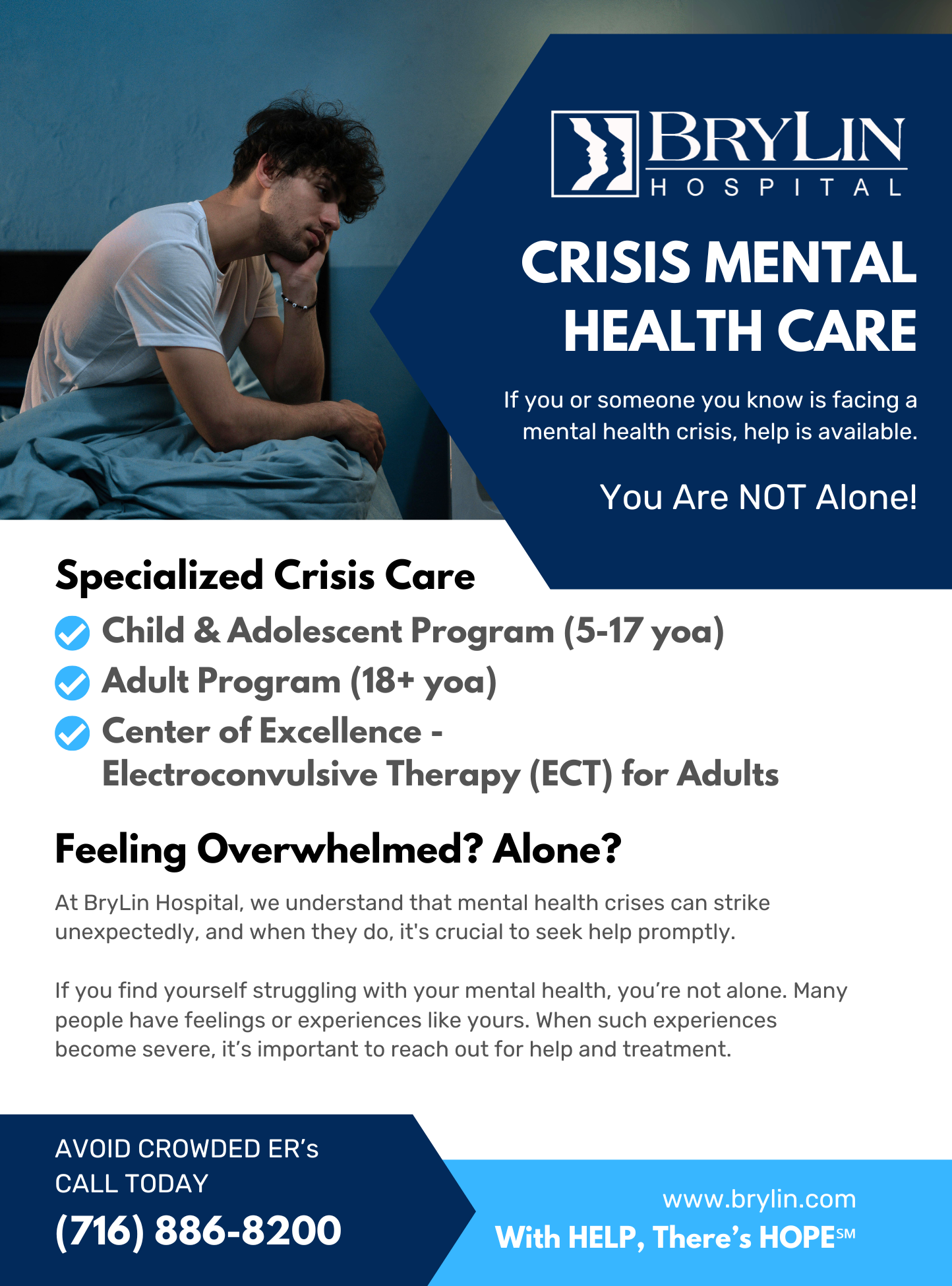Over 90 percent of people who die by suicide have a diagnosable mental illness at the time of their death. Depression is the most common of those mental illnesses. Although most people who are depressed do not kill themselves, untreated depression can increase the risk for possible suicide.
Depression Hurts
Major depression is a serious medical illness affecting 9.9 million American adults, or approximately 5 percent of the adult population, in a given year. Unlike normal emotional experiences of sadness, loss, or passing mood states, major depression is persistent and can significantly interfere with an individual’s thoughts, behavior, mood, activity, and physical health.
Major depression can occur at any age and it has no prejudices affecting all ethnic, racial and socioeconomic groups. The symptoms of major depression characteristically represent a significant change from how a person functioned before the illness, including: persistently sad or irritable mood; changes in sleep, appetite, and energy; difficulty concentrating; agitation; lack of interest in activities that were once enjoyed; feelings of guilt, worthlessness, hopelessness, and emptiness; and recurrent thoughts of death or suicide.
Suicide
Suicides are frequently found in association with mental illness, particularly with individuals diagnosed with major depression, other mood disorders and substance abuse. According to a May 2013 Centers for Disease Control and Prevention (CDC) press release, there were 38,364 reported deaths by suicide in 2010. The number of completed suicides in the US is equivalent to one death by suicide every 16 minutes. Suicide is the 11th leading cause of death for all ages and is the second leading cause of death among 25–34 year olds.
Treatment Works
There are many types of treatment options available for major depression including exercise, psychotherapy, medication, and lifestyle changes. What works for one person might not work for another. The type chosen depends on the individual and the severity and patterns of his or her illness. Although depression can be a devastating illness, it is highly treatable. Between 80 and 90 percent of those suffering from serious depression can be effectively treated and return to their normal daily activities and functioning.
Connect With Others and Save Lives
The American Foundation for Suicide Prevention (AFSP) is the leading national not-for-profit organization exclusively dedicated to understanding and preventing suicide through research, education and advocacy, and to reaching out to people with mental disorders and those impacted by suicide.
The Out of the Darkness Walks are proof that when people work together, they can make big changes in our world. These walks take place in hundreds of cities each fall to raise awareness for this important cause.
The Movement
|
2004 |
2016* |
|
| Number of Community Walks: 24 |
Number of Community Walks: 385 |
||
Number of Walkers:
4000 |
Number of Walkers
250,000 |
||
| * Estimated |
BUFFALO WALK – Event Details
Walk Date: 09/09/2017
Walk Location: Delaware Park – Buffalo, NY
Check-in/Registration Time: 09/09/2017 at 8:30 am
Walk Begins: 10:30 am
Walk Ends: 1:00 pm
For more information, please contact:
Contact Name: Carissa Uschold
Contact Phone: 585-202-2783
Contact Email: afspbuffalowalk@yahoo.com
You can learn more by checking out the Out of the Darkness Walk.
When you walk in the Out of the Darkness Walks, you join the effort with hundreds of thousands of people to raise awareness and funds that allow AFSP to invest in new research, create educational programs, advocate for public policy, and support survivors of suicide loss.
If you are thinking about harming yourself, or know someone who is, call 911 or go to a hospital emergency room to get immediate help. You can speak with a psychiatric registered nurse at BryLin Hospital, a private psychiatric hospital in Buffalo, NY, by calling 716-886-8200. Another option is calling the toll-free, 24-hour hotline of the National Suicide Prevention Lifeline at 1-800-273-TALK (1-800-273-8255) to talk to a trained counselor.
Untreated depression can increase the risk for suicide. Reach out for help. Treatment works. Speak with a health care or mental health professional to discuss your treatment options and what might be the best option for you. Contact BryLin Hospital at (716) 886-8200 for more information on depression treatment.
 With HELP, There’s HOPE
With HELP, There’s HOPE



Comments are closed